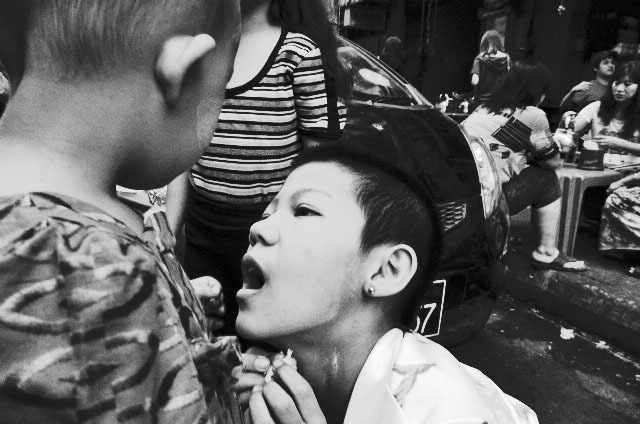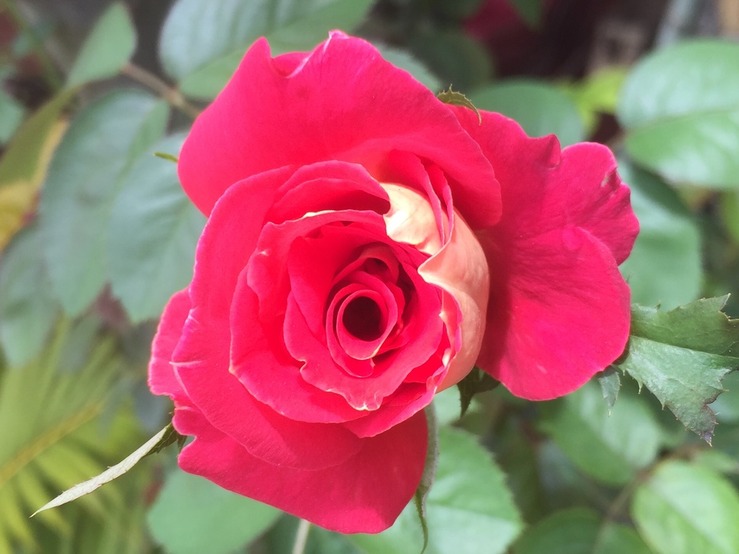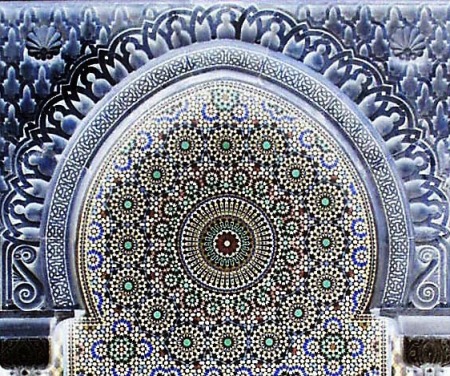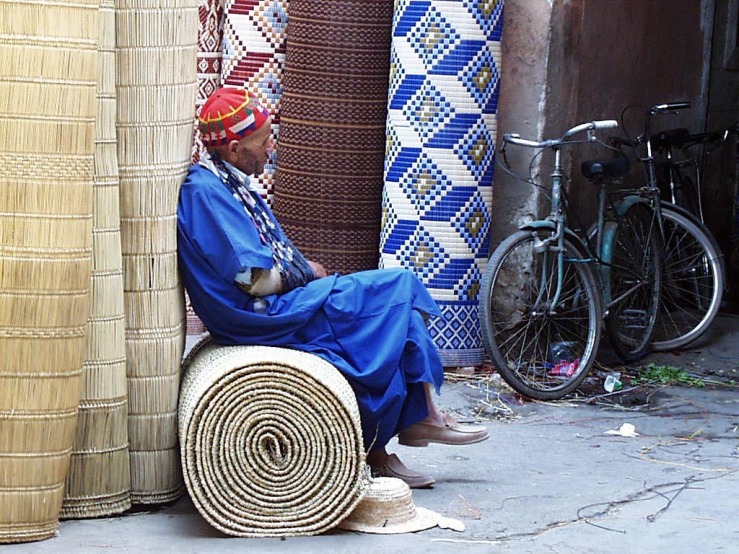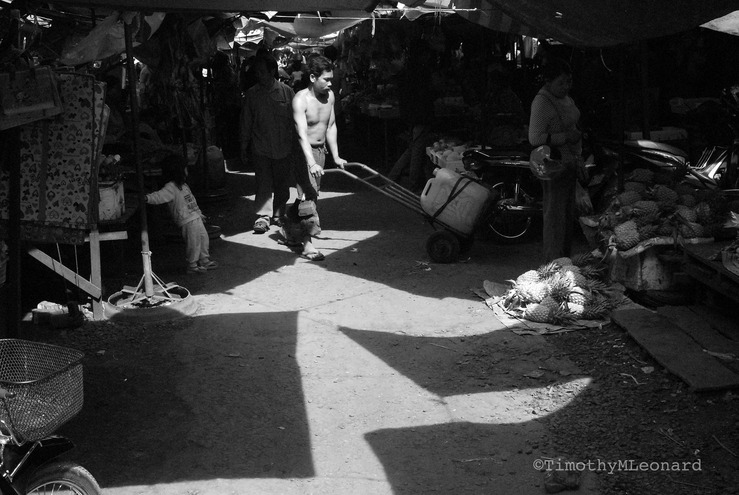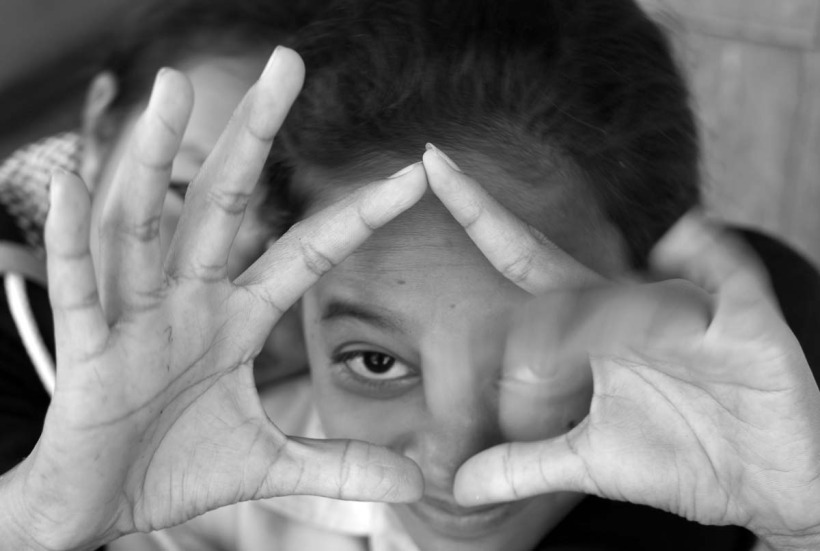A Century is Nothing
Centuries earlier or later depending on reference points along time’s thin line on an event horizon as infinity and eternity played post 9/11 dirges, fugues and blues with a full orchestra in the pits Ahmed resumed his story in the Sahara.
“Fate bites you when you least expect it,” he said waving his hands like wild kites. “Her appetite is insatiable.”
I was so far removed from 9/11 reality I took no possession of the event. I read Ahmed’s open palms and eyes. My facility for unspoken tongues was legendary. It was all body language and I was fluent in every language.
Gestures were a work in progress.
Gestures used people.
Ahmed described airplanes and two tall towers. “I’ve read Superman by Nietzsche in Arabic. He said 'God is dead' and God said, 'Nietzsche is dead.'"
He waved his arms like a Moroccan eagle condemned to freedom yet a prisoner of the sky. He raised a hand indicating height and smacked his flying hand into his stationary hand. The impact echoed across caramel dunes. He smiled through black teeth. His dark eyes held all the world’s secrets.
I had no idea where, who, how, why, or when Ahmed received his information. Perhaps from slave and gold trade caravans, perhaps through osmosis.
“Yes,” Ahmed said, “2,974 people from 80 countries died.”
“I see.” We were just two nomads in the desert. We did not talk about Being and Nothingness. We tweaked reality by breathing.
I handed Omar’s book to Ahmed. “Have a look-see.” Ahmed read Tifignagh words.
“He was not as surprised, stunned and scared as all the well meaning myopic tax paying, allegiance singing populace would have the world’s citizens believe in their us or them attitude. He knew they’d be catapulted into a new heavy deep reality, grounded fast, sifting soil, searching for answers, breathing through death masks, deconstructing and revising history while pleading for meaning to their existence. Postmodern dialectics.
“Now they had to figure out the big answer to the big question. Why? It’d keep them busy for life. Their children taught them to ask why? Being extremely impatient and under extreme pressure to be successful in their all-consuming reality, they became extremely frustrated with the “why” question from their children. Parents wanted to be the boss, the grown-ups in complete control. They figured they had all the answers.
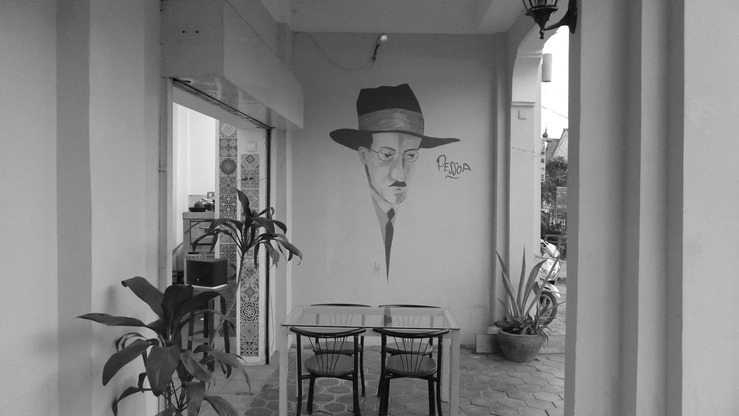
“Whoops!
“In the BIG game people with a long history rolled their dice when it was their turn to play and everyone had to go back to the start. They had to read the rules. The small print. The details they casually accepted carte blanche, data they skipped because they didn’t think it was important, the stuff made in Hollywood, the fictional entertainment stuff with happy endings. They were well conditioned to violence, sex and reality television. Now they tasted so-called reality television in real time.”
I pointed to a faded yellow page marked “Empirical Evidence” for Ahmed’s crash course in documentary fiction techniques.
“Somebody off stage had triggered the light switch and their fragility was exposed. Evaporated their sense of humor. The audience sat stunned in silence when the curtain came down. It was full of holes, loopholes and wormholes. The apple was rotten. Survivors needed a card from the deck of life and did not want to see the one with the guy wearing the funny hat with bells. A small minority studied history. They knew, in a vague way, being experts on vagueness, how history repeated itself. They’d supported totalitarian regimes in the Persian/Arabic Gulf for decades burning imported Middle Eastern oil well past their bedtime.”
Only the fool spoke the truth. This was a sobering reality. Ahmed continued reading.
“It was extremely frustrating. People in their illusionary magic kingdom assumed they were always supposed to be going forward to bigger, better, faster things. There was talk about a shift in Teutonic plates of awareness. Many plates showed their age being cracked, badly needing repair, requiring immediate unequaled madness assistance or UMA. Someone tried their cell. It was busy, snagged on assorted Fear, Uncertainty and Doubt. The big F.U.D.
“Connections were a flashback to a simpler existence of peace and prosperity with model tract homes, two car garages, appliances, fast and faster food, weapons of mass destruction in the closet, renewable bonds, treasury notes, love notes, and notes on the edge of a cliff waiting for patients streaming out of their personal and collective asylums on holidays as prescribed medications rendered them insolvent, compliant and mute. Very compliant.
“A secure line of clear communication was caught in the undercurrent, the violent raging delight of human nature doing her infinite playful thing below the realm of consciousness. She stirred things up in a big way.
“Humans had a lot of explaining to do. Explaining how the world worked. Explaining all the moral ambiguities, all the fill-in-the-blank final exams. They were in big trouble.
“‘Because I said so,’” was their old standard refrain when their sweet, ever-so-kind little monsters asked “why” for the umpteenth time. Their ignorant facades had developed huge cracks. It was time to straighten the whiners out once and for all. They went shopping to satisfy their fear of poverty, to overcome their fear, a small fear growing stronger day by day being fed by hysterical know-it-alls in ivory soap towers of higher intellectual reasoning based on empirical evidence.”
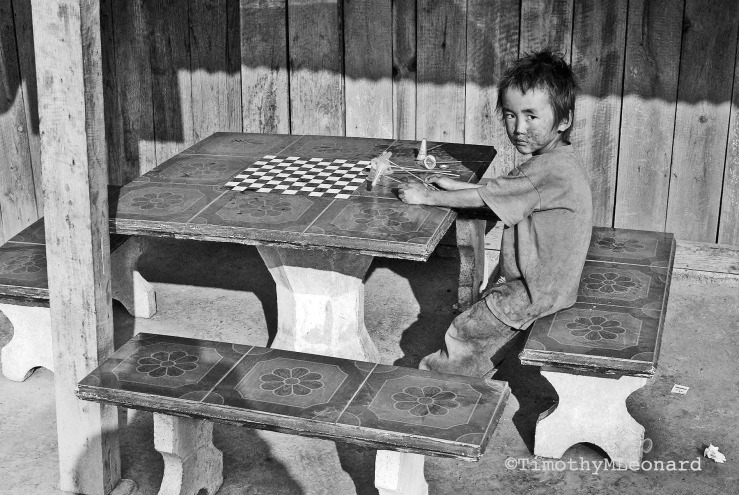
“More channels!” someone screamed. “We need more channels!” There was a preponderance of rumors. Part of the evidence was charred beyond recognition. It would need DNA analysis and carbon-14 dating.
According to Omar, “Teams of social workers swarmed across the land extolling virtues of well being, hope, trust, and bravery in the face of adversity, values, free choice, and impending sales at outlet stores. People seeking outlets and outlet stores found solace in their ignorance of how the world worked on molecular, political, religious, economic, philosophical, and cultural levels. Long festering animosity and cultural bias had come full circle. An invisible Orobus constricted their heart. Their myth was part idealism and realism standing on its head.
“Their socially, culturally, geographically and emotionally deprived children listened, shaking their heads, learning a very hard life lesson. One that escaped their well meaning parents. Kids knew when adults were bullshitting them.
“Scholars educated at global universities started speaking Arabic, reciting Sufi poetry, and 1,001 stories about the rise and fall of civilizations written before their time with hieroglyphics and cave paintings. Survivors filled caves. Candles sales were brisk.”
“A tisket a tasket we need a casket,” sang multi-lingual children.
“Historians, political scientists, talk show experts, taxi drivers, fortune tellers, beauticians, and morticians took hotline calls. The number of callers increased exponentially. Suicide search and rescue teams were put on alert. Citizens packed hospital emergency rooms. Medical schools increased graduation classes to meet the growing need. Demand outstripped supply when it came down to fear and consumption.”
“Wow, that's some heavy sociological shit, Ahmed,” said I.
“Get this next part,” said Ahmed, turning a page.
Get is the joker word in English.
“What happens when they run out of insecurity control programs?” a child asked her mother. She was the mother of all answers.
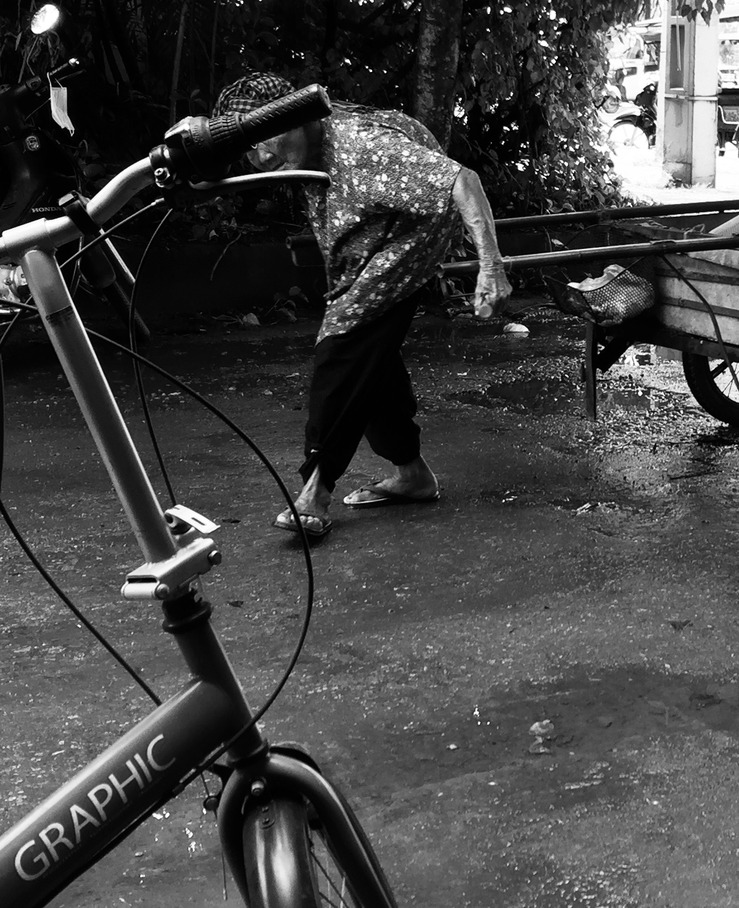
“Don’t worry my sweet,” said the anxious neurotic mother living her worst nightmare, “they’ll invent something new and improved. The manufacturing sector will rebound when shelves are empty. We’ll always have sugar and we can always go shopping.”
“How long will it take?”
“Hard to say. Could be we won’t live to see it.”
“I was afraid of that.”
“There is only F.U.D.,” said her mother twisting her hair until it caught fire.
“What is F.U.D. mother?”
“Fear, uncertainty and doubt. Been with us a long time and now it’s back with a vengeance.”
“How long?”
“You ask too many questions child,” she said fanning her daughter’s flame. “A long time. A Century is Nothing.”
“It’s good to know some things,” said the girl.
“A little knowledge can be a dangerous thing. I’ve already told you a lot.”
“Imagination is more important than knowledge. Tell me the truth,” mother. “I want to know the hard irrefutable truth.”
“The truth is, it’s all a lie. Everything we know is a lie. Our insecurities are evolving. I believe in my heart-mind that life is a celebration. It is beautiful, harsh, nasty and short. A Hobbesian dream scream. There’s no rhyme or reason or social contract. It’s about realizing peace in your heart and community. Inhale suffering and exhale healing. Cultivate heart awareness.”
“I will be authentic and mindful mother. May we go out and play now? May we take the day off and be creative?”
“Yes, let’s invent a game theory my sweet daughter.” They went out into the world.
Omar knew children suspected parents, teachers, social workers, bureaucrats, philosophers and homeless people living in cardboard shelters did not control the market on clearly defined answers. Adults searched for the remote. They knew something better just had to be on the idiot box.
Families of big brown rats scrambled out of dark dens scurrying through dead matter looking for food. The little animal named Fear, Uncertainty and Doubt was starving. It had a vociferous vain appetite for glorious political/economic systems. It ate it’s young, with relish at picnics. It had no principles or 20th century rationale, no religious ideology or neo-conservative agenda.
It was not a vegetarian or a peace activist burning candles, sitting around wringing their bloody hands mumbling, “Oh what a pity,” or, “Somebody should have seen this coming.”
FUD avoided focus groups like the plague, read Arabic history and poetry by Rumi. Their appetite was legendary and tremendous.
“Such a true story,” said Ahmed closing the book. He pointed at the sky. “Look, the north star.”






 Share Article
Share Article 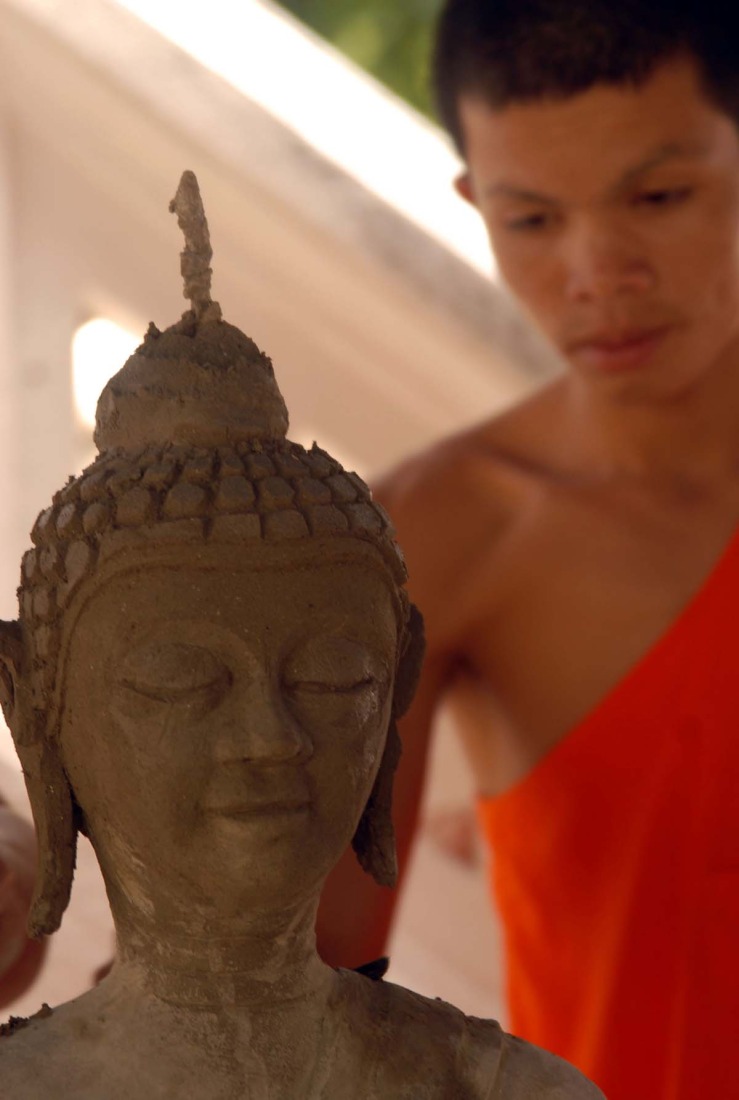
![A Century is Nothing by [Timothy Leonard]](https://m.media-amazon.com/images/I/512xA5ZTGsL.jpg)
